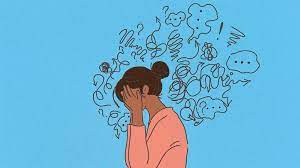Social anxiety disorder
We're all a little scared about going to social gatherings because we're afraid of being judged by our peers or strangers. For example, before giving a public speech, your mind races, you get butterflies in your stomach when the instructor asks you a question in front of the class, and so on. Anxiety sensations are common and generally go away after a while.
When people with social anxiety disorder or social phobia believe they are the centre of attention, they suffer great fear and anxiety. Everyday social settings, like as attending a business conference or meeting, giving a presentation, attending a wedding or a party, or going out to eat with friends, might provoke anxiety in these people.
Social anxiety disorder affects approximately 15 million American adults and is the second most commonly diagnosed anxiety disorder following specific phobia. The average age of onset for social anxiety disorder is during the teenage years. Although individuals diagnosed with social anxiety disorder commonly report extreme shyness in childhood, it is important to note that this disorder is not simply shyness
People with social anxiety disorder may worry about acting or appearing visibly anxious (e.g., blushing, stumbling over words), or being viewed as stupid, awkward, or boring. As a result, they often avoid social or performance situations, and when a situation cannot be avoided, they experience significant anxiety and distress. Many people with social anxiety disorder also experience strong physical symptoms, such as
- A rapid heart rate
- Nausea
- Sweating
May experience full-blown attacks when confronting a feared situation.
Although they recognize that their fear is excessive and unreasonable, people with social anxiety disorder often feel powerless against their anxiety.
Symptoms of social anxiety disorders are as follows;
- Worrying intensely about social situations
- Worrying for days or weeks before an event
- Avoiding social situations or trying to blend into the background if you must attend
- Worrying about embarrassing yourself in a social situation
- Worrying that other people will notice you are stressed or nervous
- Needing alcohol to face a social situation
- Missing school or work because of anxiety


